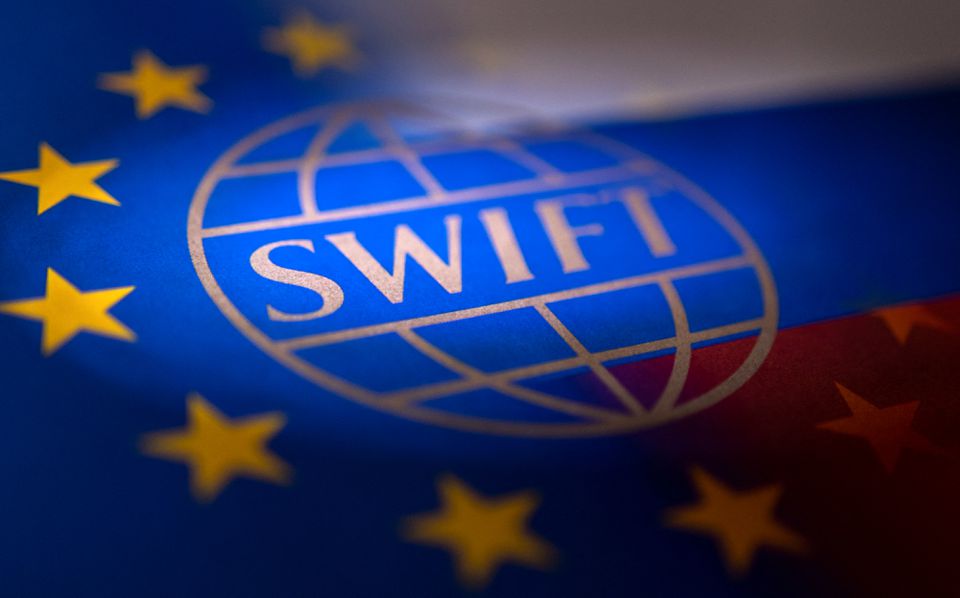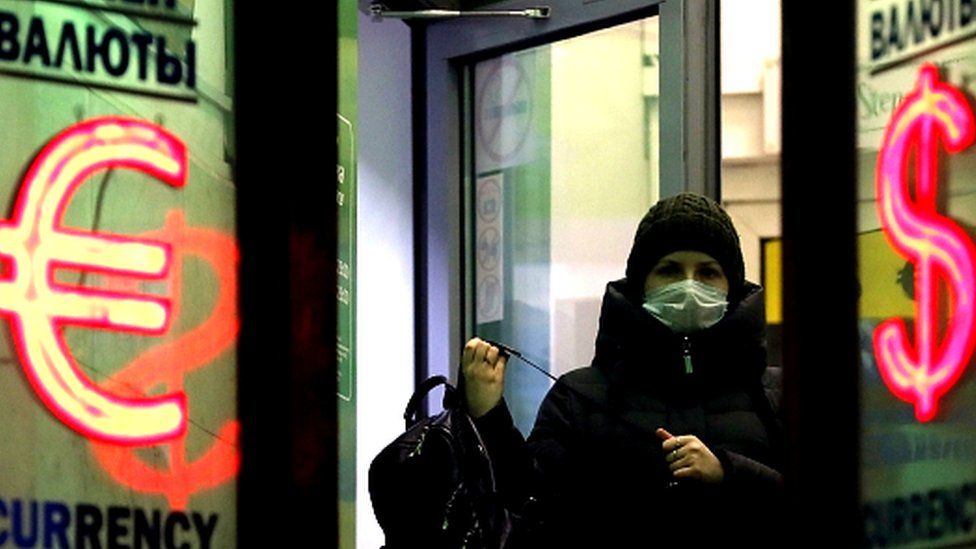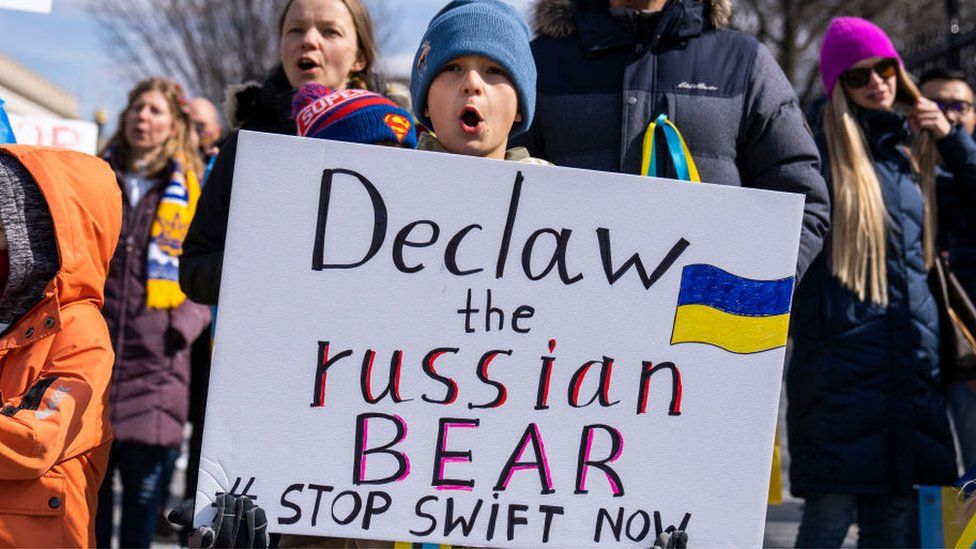By Eleni Metanoia,
On February 24th, 2022, Russia launched a large-scale invasion of its neighbor Ukraine, provoking a series of international reactions from the main western leaders and civil society. This attack posed a threat not only to international peace and security, but also to the stability of the current financial system.
Some of the consequences that have already taken place as a result of the Russian military intervention in Ukraine are the possibility of a new refugee crisis, the rise in the prices of main commodities such as gas and oil resulting in sky-rocketing inflation, and a change in the political and economic relations between western democracies and Russia due to the announcement of a new package of economic sanctions imposed by the White House and its strategical allies.
In a recent article in the New York Times written by Emily Flitter and David Yaffe-Bellany: “Sanctions are some of the most powerful tools the United States and European countries have to influence the behavior of nations they do not consider allies. The United States, in particular, is able to use sanctions as a diplomatic tool because the dollar is the world’s reserve currency and used in payments worldwide”.
One of the scenarios that have caused great concern for Russian authorities and its main trade partners is the threat made by the United States and their allies of removing Russia from the Society for Worldwide Interbank Financial Telecommunication (SWIFT) system, as part of the previously mentioned sanctions.
The SWIFT is a secure messaging network that allows fast and cross-border payments, enabling safe financial transactions and international trade for its members. Based in Belgium, it facilitates transactions of more than 11,000 banks and financial institutions worldwide including the most important Russian financial institutions and companies.
Erik Ortiz in an article made for NBC news stated: “SWIFT […] recorded an average of 42 million messages per day last year, an 11 percent increase from 2020, when Russia accounted for 1.5 percent of transactions”. He continues by saying:“The move could cut Russia off from most international financial transactions, including profits from oil and gas production, which account for more than 40 percent of the country’s revenue”.
Cryptocurrencies, an alternative for Russia to deal with the SWIFT ban?
As it was previously mentioned, the US and its allies may remove Russian financial institutions and companies from the SWIFT system, which may result in a Russian attempt to find ways to lessen the impact of these measures on its economy.

Many government officials and business analysts have pointed out that one of the alternatives that the Kremlin may enforce is the use of shady schemes involving cryptocurrencies and legal loopholes to retain their commercial activities with their business partners across the globe.
According to the European Central Bank (ECB): “A virtual currency is a type of unregulated, digital money, which is issued and usually controlled by its developers, and used and accepted among the members of a specific virtual community”.
The unregulated nature of these digital assets poses many risks for the traditional financial institutions and the economic security, because of the anonymity which prevents cryptocurrency transactions from being adequately monitored, the possibility of tax evasion as well as the phenomenon of money laundering and terrorist financing.
According to the Sanctions Compliance Guidance for the Virtual Currency Industry released in October of 2021 by the US Treasury Department, the companies participating in the aforementioned industry have to comply with a number of recommended procedures made by the US government such as:
- The incorporation of geolocation tools and IP address blocking controls.
- Obtaining information about customers during onboarding and throughout the lifecycle of the customer relationship, and using such information to conduct due diligence sufficient to mitigate potential sanctions-related risk.
- Transaction monitoring and investigation tools can be used to spot transactions involving virtual currency addresses or other identifiers.
- Sanctions Screening can be an essential part of a virtual currency company’s internal controls and may include geolocation, customer identification, transaction screening, and more.
However, many of these recommendations are not clear, as they lack the specificity necessary to implement them properly, due to their non-binding nature. An example of this failure in the legal framework mentioned in the report is that: “In many cases, […] crypto companies have taken months or years to carry out such compliance procedures”.
On the other hand, Ursula von der Leyen, President of the European Commission, has emphasized the importance of: “[…] a common approach with Member States on cryptocurrencies to ensure we understand how to make the most of the opportunities they create and address the new risks they may pose”.

All in all, from the analysis made before, it is crucial to point out that serious action should be taken to strengthen the legal framework regarding the regulation of crypto assets in the financial market, whilst aiming at achieving a common strategy for the joint sanctions that western democracies, who are trying to impose on governments that do not abide by their standards of international law and human rights.
References
- SWIFT banking system could be used as sanction against Russia. What is it?, nbcnews.com, Available here
- How the SWIFT System Works, investopedia.com, Available here
- Why the West is reluctant to deny Russian banks access to SWIFT, economist.com, Available here
- European Central Bank, Virtual currency schemes, 2012, ecb.europa.eu, Available here
- Office of Foreign Assets Control, Sanctions Compliance Guidance for the Virtual Currency Industry, 2021, home.treasury.gov, Available here
- Russia Could Use Cryptocurrency to Blunt the Force of U.S. Sanctions, nytimes.com, Available here




